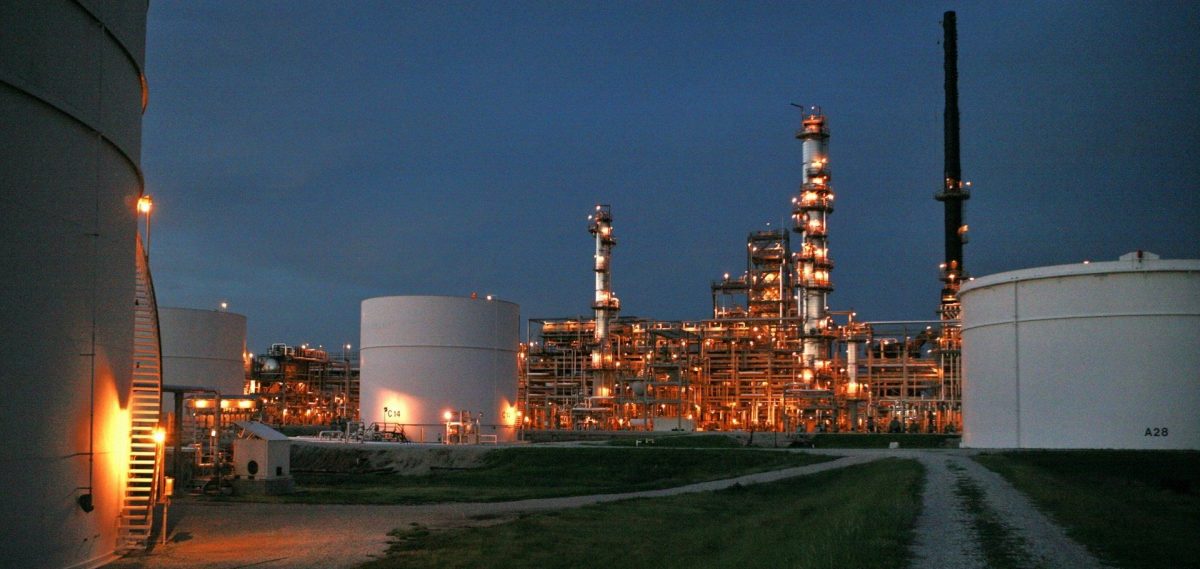In a move Nigeria’s president hailed as a “landmark moment”, Africa’s largest oil producer approved legislation this week to bolster its share of revenues from international majors.
The authorities say the amendment — heralded as the biggest change in decades to its production sharing deals — will bring billions of dollars into state coffers as the country belatedly claims an “equitable share” of its vast natural resources.
But oil industry insiders have slammed the change as an ill-planned attempt to grab money and warn that it could prompt an exodus of investments as foreign firms turn their backs on Nigeria.
The changes redraw the Deep Offshore (and Inland Basin Production Sharing Contract) Act which been in force since it was passed in 1993 when Nigeria was under military rule.
The law mandated that the split of revenues between the state and the international oil firms should be reviewed if prices climbed over $20 per barrel.
But while crude has soared far above that point over the past two decades, a revision of the formula for revenue sharing was never carried out.
Buhari’s government have accused previous Nigerian lawmakers of having vested interests in making sure the bulk of oil revenues remained in private hands.
The new law sets a staggered “royalty rate” on crude oil sold above $20 — rising to the highest rate of 10 percent if the price reaches more than $150 a barrel — with the revenue due to the government increasing in line with oil price rises.
In a second revenue stream, oil companies will also pay a flat tax of 10 percent on off-shore fields and 7.5 percent on inland fields, within specified depths.
Buhari’s office has estimated the change will bring in at least $1.5 billion in added revenue by 2021.
But according to experts, oil companies involved in off-shore production could review their investments, reducing the revenue boost Nigeria hopes to achieve.
-Fiscal crisis-
As oil prices slid in recent years, meaning a drop in revenue for the government, Nigeria has been steadily increasing pressure on some of the world’s biggest energy companies — Shell, Exxon Mobil, Chevron Eni, Total and CNOOC — who extract most of the crude oil in Nigeria.
About half of government spending is reliant on income from oil sales.
In mid-October Nigeria´s government controversially claimed oil multinationals owed the country $62 billion in back revenues, which the oil firms disputed.
“We have no idea how the government arrived at such an amount,” a representative of one of the major oil firms told AFP on condition of anonymity.
Since the claim, a government minister conceded the money was unlikely to be retrieved in its entirety but that a settlement could be reached.
Emerging markets expert John Ashbourne insisted that the “fiscal crisis, with the federation forced to dedicate a larger and larger share of its revenue to paying off its debts” is a factor in Nigeria changing its agreements with oil firms.
The attempt and the latest changes in the law signal a more stringent economic environment for multinationals, whose response could significantly impact Nigeria’s oil-reliant economy.
– ‘Pull out investments’ –
Major oil companies have long been accused of having a cosy relationship with lawmakers in Africa’s largest economy.
Despite large oil and gas reserves, the majority of people in Africa’s most populous country live in extreme poverty, on less than $1.90 a day.
Since the 2000’s there have been repeated calls to amend the 1993 law — but until the latest push the measures failed to get past Nigerian lawmakers.
A report by the Nigeria Extractive Industries Transparency Initiative said if contracts with oil companies were reviewed in 2008 Nigeria would have earned at least $16 billion in extra government revenue over the following decade.
An oil industry source, speaking to AFP on condition of anonymity, warned the bill was the “beginning of the decline of deep water investments” in the country.
“Oil companies have already started to pull out investments out of Nigeria,” he said.
Some in the oil industry claim that extracting oil from off-shore basins, drilling below the sea in Nigerian territorial waters, is already expensive and that the new amendments could make them unprofitable.
“It is possible that this new tax will push costs over the break-even point,” said Ashbourne.
But he added that oil companies tend to exaggerate their warnings of negative repercussions when they find themselves facing an increased tax bill.
“Resource firms always threaten this when faced with new taxes; but they seldom actually abandon their operations.”
